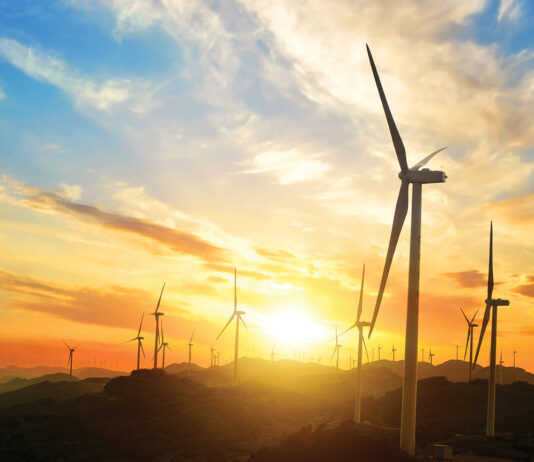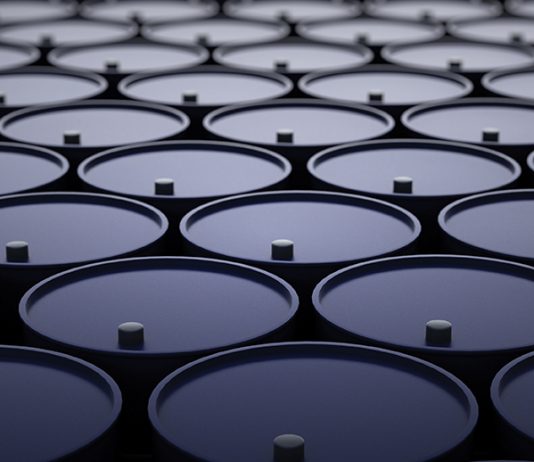
Energy prices have been rising for over a year and in recent weeks, they’ve been skyrocketing both at home and abroad. The causes of this impending energy cost crisis are multitudinous, but they are all rooted in the same problem: command and control energy and fiscal policies put in place by lawmakers that think they know best.
From policies like wind and solar mandates and subsidies that push us away from tried and true technologies, to more extreme proposals like net-zero and all-electric mandates for cars, many of the policies being proposed and implemented both in this administration and globally are causing the very problems that those same global leaders responsible for the problem purport to be perplexed by.
The Biden administration is front and center in this push away from affordable and reliable domestic natural gas and oil production. In this administration, we’ve seen the revoking of pipeline permits and pausing the issuance of new oil and gas leases on federal lands, all as the President calls for increased production and accuses companies of withholding production capacity out of greed.
Energy prices are rising globally, but some of the sharpest increases can be seen in European countries that are much further along the same policy trajectory as this administration has placed us on.
These price increases should come as no surprise. For months they have been steadily rising. But rather than enact well-constructed policy to cope with the challenge, lawmakers chose to double down on anti-market energy strategies that simply don’t work.
Now that the price crisis is well underway, legislators across the country are resorting to quick-fix policies that serve only to further distort markets and create the perception that they are actually concerned, even though they know that higher energy prices are a fixture, not a bug, in their Green New Deal agenda.
Both Maryland and Georgia have temporarily ceased collection of their state gas taxes. In Maryland this has spurred other D.C. area residents to cross over into Maryland to make their gas purchases, distorting the market. New Jersey and Connecticut are also among the states considering suspending the tax. Meanwhile, California is weighing a more extreme solution, a $400 per car gas tax rebate capped at $800 per household.
Predictable and consistent policy is key to minimizing the market distorting effects of various forms of taxation. But when we wait to respond to an issue until it has become a crisis, clear and measured decisions are far more difficult to make. This was true for the policy responses to energy issues at the beginning of the pandemic, and it’s true now. Government meddling created this problem, and further government meddling is serving only to exacerbate it.
There are so many factors playing into the rise in energy costs, but a major one, especially in Europe, is an overreliance on wind power, which underperformed this summer and winter along with decades of underinvestment in natural gas and oil. Consequently, European Union countries now depend on Russia for 40 percent of their natural gas (and 34 percent for oil), which clearly poses a threat to their security. Now that countries like Germany have shown support to the Ukrainian cause, they must find replacements for the bulk of the Russian gas capacity that they had been relying upon.

Germany’s grid has some of the highest wind penetration in the world, but when a period of calm coincides with other supply shortfalls like those caused by the war in Ukraine, their options are limited. This March, just shy of 19 percent of Germany’s electricity came from wind. In March of 2021, that figure was nearly 26 percent, and in 2020 nearly 33 percent. This kind of variability does not lend itself to grid stability.
All of this was driven by government policy, not market forces.
It turns out that the existential threat related to energy is being overly dependent on another nation for a commodity that is essential for electricity, heating, and even for food production. This overreliance comes with consequences, which are being seen now in the form of rapidly rising prices, and may eventually lead to an even worse scenario — energy shortages. A pragmatic energy policy would prioritize reliability and affordability instead of relying so heavily on unreliable renewables and imports from a strategic enemy.
Let’s turn our attention back to the United States. In the wake of the 2020 election, President Biden made it clear that he intended to be an enthusiastic advocate against domestic natural gas and oil production.
The cancellation of the Keystone pipeline, the de facto lease suspension, the weaponization of financial regulators, the proposed tax increases on methane, market-distorting tax credits for unreliable energy sources, the recent FERC pipeline policy statements — and many more — are part of an effort to purposefully create an environment in which it is difficult to invest in domestic natural gas and oil. All of these policies have a chilling effect on production and new investment. You can’t disincentivize the production of energy at every turn and simultaneously expect for more of it to be produced.
The repetition of the propaganda about the utility of alternative sources of energy, the possibility of net-zero greenhouse gas emissions, and the inevitability of an “energy transition” have led directly to higher energy prices for Americans.
Those involved in finding and producing the fuels that currently power the world are rightly concerned that our government might be serious about creating an electricity system entirely dependent on wind and solar power or outlawing gasoline or diesel-powered cars and trucks. How can anyone blame them when that is all they hear from the leadership in Congress and the White House?
Consequently, these businesses have under-invested in natural gas and oil over the last several years. In 2014, the world spent about $490 billion finding and producing oil and natural gas. In 2021, it was less than half that number at just $220 billion. This is simply common sense. Our elected leaders can’t disincentivize and demonize oil and natural gas production and simultaneously want more of it.
Despite high prices, growing demand, and shrinking supplies, energy companies are disinclined to rush to produce more oil. Why? Because they are listening to policymakers and are concluding that such investments and such actions — which in most cases require years to pay off — are simply too risky in the current political and social environment.
Therefore, it should come as no surprise that the cost of gasoline, natural gas, and food are all soaring.
The Biden administration has been attempting to have it both ways by continuing to put forth its costly and unproductive energy agenda while also posturing as though it is concerned with lowering energy prices.
But in reality, Democrats in Congress are more preoccupied with putting forth legislation to block oil companies from receiving “windfall profits”, a.k.a. selling something that Americans are buying, instead of focusing on removing barriers to production.
Energy is an input into nearly every good that we consume, and increasing energy costs are both partially a result of inflation and a driver of it. When energy is more expensive, then everything else becomes more expensive as well.
As people continue to return to their pre-pandemic activities, energy consumption is on the rise and will likely continue to be. Although not a main driver of the rise in costs, this is one more factor that feeds into the overall rise in prices that we have seen and will continue to see.
All of this is happening alongside rapid inflation made worse by fiscally irresponsible stimulus programs and other massive government spending that has occurred in the U.S. over the last few years. Printing money is not and should never be a solution to our problems.
These rising energy prices are a result of mistakes, misaligned goals, and bad policy choices by politicians, bureaucrats, and even leaders of some of the institutions that provide financing for oil and natural gas projects.
Although they have already shown that they’re unlikely to do so, the Biden administration should act quickly to remove the artificial barriers to production that it has erected, and should avoid passing new spending legislation which would only serve to raise deficits and stoke inflation further.
America’s oil and natural gas industry can solve this problem. All they need is for politicians and woke capitalists to stop standing in the way. About the author: Thomas J. Pyle is the president of the Institute for Energy Research (IER), an energy think tank and the American Energy Alliance (AEA), a not-for-profit that engages in grassroots public policy advocacy and debate concerning energy and environmental policies at both the state and national level. He served as head of transition for energy under President Donald J. Trump.
















